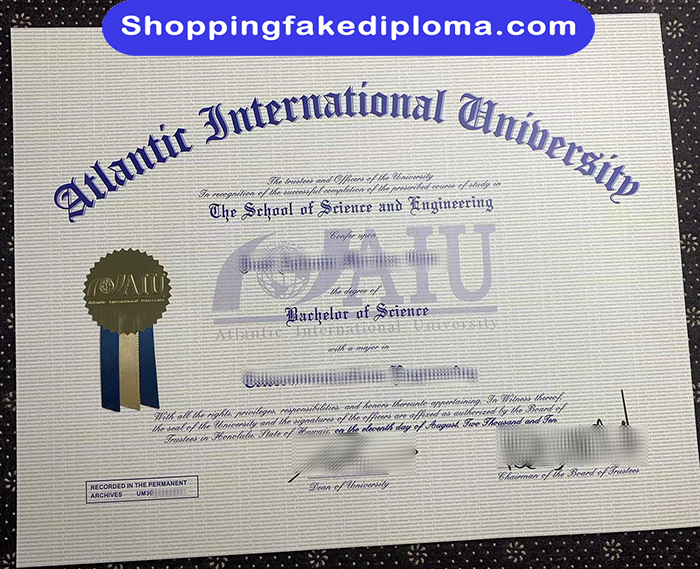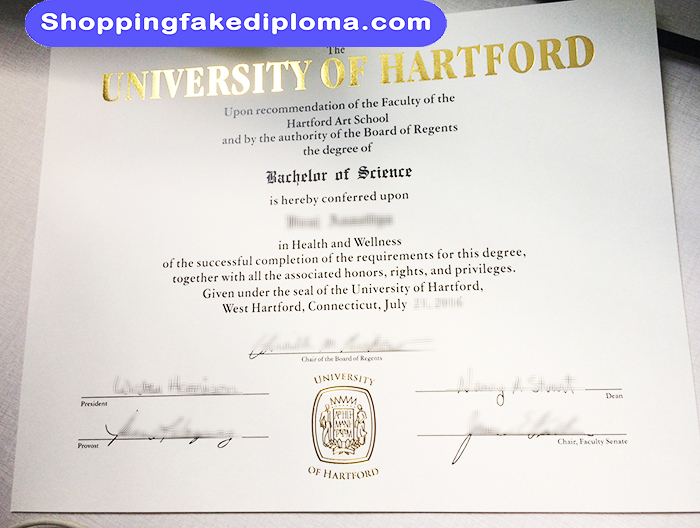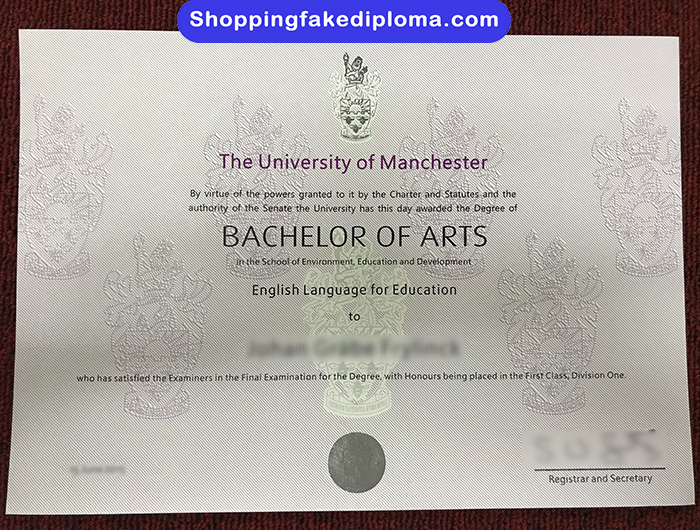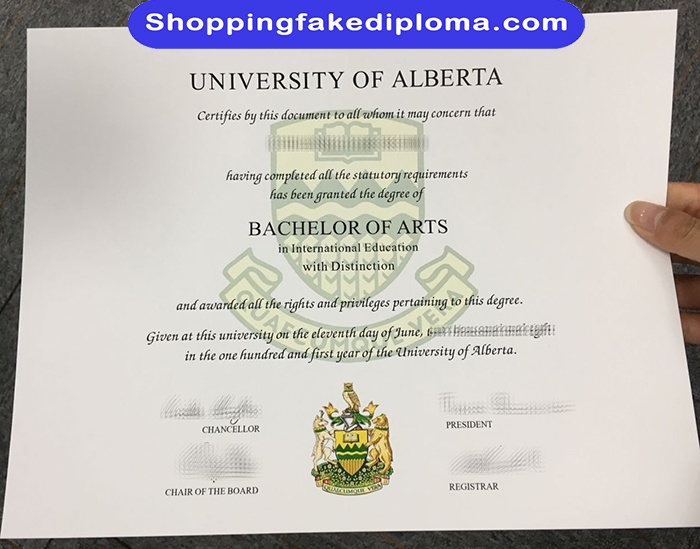In today’s digital age, the pursuit of higher education has expanded beyond the boundaries of conventional brick and mortar institutions. With the click of a button, you can now earn a degree online at your own convenience. However, amidst this accessibility lies a dark secret – the rise of online diploma mills, where fake degrees are easily obtained with little to no effort.
These diploma mills advertise themselves as legitimate educational institutions, offering degrees in various fields. But behind their shiny websites and impressive course catalogs, lies a deceptive operation that preys on unsuspecting individuals desperate to further their careers or boost their qualifications.
In this eye-opening exposé, we delve deep into the world of online diploma mills, unraveling the truth behind these fake degrees. From how they operate to the implications for society, we reveal the alarming consequences of their existence. We’ll also arm you with the knowledge to spot these fraudulent institutions and protect yourself from falling victim to their deceitful practices.
Join us on this investigative journey as we peel back the layers and uncover the hidden realities of online diploma mills. It’s time to shed light on this growing menace and empower individuals to make informed choices when it comes to their education and credentials.
How online diploma mills operate
Online diploma mills operate by exploiting the demand for quick and easy degrees. They create websites that mimic legitimate educational institutions, complete with professional-looking designs and enticing course offerings. These websites often feature testimonials from supposedly satisfied graduates, adding an additional layer of credibility.
To obtain a fake degree, individuals are usually required to pay a fee and provide minimal to no academic work. Some diploma mills may ask for a resume or prior work experience to make the process appear more legitimate. Once the payment is made, the diploma mill issues a degree certificate that looks genuine to the untrained eye.
These diploma mills thrive on the desperation of individuals seeking credentials to advance their careers or gain social recognition. They exploit the inherent trust placed in educational institutions and exploit the lack of awareness regarding their existence. The ease of access and low effort required make them an attractive option for those looking for a shortcut to success.
The implications of online diploma mills go beyond the individuals who acquire fake degrees. The devaluation of legitimate education undermines the integrity of the educational system as a whole. It erodes the value of genuine qualifications and creates a society where merit is overshadowed by fraudulent credentials. The consequences of this deception are far-reaching and demand immediate attention.

The rise of fake degrees and its impact
Spotting a fake degree can be challenging, but there are several signs and red flags that can help identify fraudulent institutions. First and foremost, it’s important to research the educational institution thoroughly. Legitimate institutions are typically accredited by recognized accrediting bodies. A quick search on these accrediting bodies’ websites can confirm the legitimacy of an institution.
Another red flag is the lack of proper contact information. Diploma mills often provide limited or no contact information, making it difficult to reach them for verification or inquiries. Legitimate educational institutions are usually transparent about their contact details, providing multiple means of communication.
The quality of the website itself is also indicative of a diploma mill. Legitimate educational institutions invest time and resources into creating professional websites that provide comprehensive information about their programs, faculty, and admission requirements. Diploma mills, on the other hand, often have poorly designed websites with grammatical errors, inconsistent information, and a lack of depth.
Additionally, the promise of an extremely short timeline to complete a degree should raise suspicions. Legitimate degrees require a significant amount of time and effort to earn. If an institution claims that you can earn a degree in a few weeks or months, it’s likely a diploma mill.

Recognizing fake degrees: signs and red flags
The operation of online diploma mills raises serious legal and ethical concerns. While they may try to position themselves as “alternative education providers,” their deceptive practices fall outside the boundaries of legality. Selling fake degrees is considered fraud in many jurisdictions, and individuals involved in these operations can face severe legal consequences.
Furthermore, the ethical implications of diploma mills cannot be overlooked. Individuals who acquire fake degrees undermine the trust placed in educational qualifications, leading to a devaluation of genuine accomplishments. This not only affects the individuals who worked hard to earn their degrees but also impacts the credibility and reputation of the industries in which these fake degree holders seek employment.
Employers rely on credentials to gauge an individual’s skills and qualifications. When individuals with fake degrees enter the workforce, it compromises the integrity of the hiring process and can lead to incompetent individuals occupying positions they are not qualified for. This can have serious repercussions in fields such as healthcare, engineering, and law, where public safety may be at stake.

Legal and ethical concerns of online diploma mills
Using a fake degree can have severe consequences for both individuals and society as a whole. In the short term, individuals may experience a sense of accomplishment and gain access to job opportunities they would not have otherwise. However, this sense of achievement is short-lived and can quickly turn into a nightmare when the truth is uncovered.
Once employers discover that an employee’s degree is fake, the consequences can be dire. Termination of employment, legal action, and damage to one’s professional reputation are just some of the potential outcomes. Individuals may find themselves blacklisted from future job opportunities, as word spreads about their fraudulent credentials.
On a broader scale, the proliferation of fake degrees erodes trust in the education system. Employers may become skeptical of all qualifications, leading to increased scrutiny and verification processes for all applicants. This not only hinders the progress of genuine candidates but also creates a climate of suspicion and mistrust.

The consequences of using fake degrees
Verifying the authenticity of a degree is crucial to ensure that the qualifications you hold or consider accepting are legitimate. The first step is to research the educational institution and verify its accreditation status. Accrediting bodies maintain databases of accredited institutions, and a simple search can provide the necessary information.
In addition to checking accreditation, it’s important to reach out directly to the educational institution for verification. Legitimate institutions have dedicated departments or individuals responsible for verifying degrees. They can provide information about the program, graduation dates, and other relevant details.
Employers can also conduct background checks on potential employees to verify their educational qualifications. This may involve contacting the educational institution directly or using third-party verification services that specialize in checking the authenticity of degrees.
By taking these steps, individuals and employers can protect themselves from falling victim to diploma mills and ensure the credibility of the qualifications they possess or consider accepting.
Steps to verify the authenticity of a degree
Recognizing the threat posed by online diploma mills, regulatory bodies and organizations around the world have taken steps to combat this issue. Governments have implemented laws and regulations to crack down on diploma mills and prosecute those involved in their operation. For example, in the United States, the Federal Trade Commission has taken legal action against several diploma mills, imposing fines and shutting down their operations.
Additionally, organizations such as the Council for Higher Education Accreditation (CHEA) and the United Nations Educational, Scientific and Cultural Organization (UNESCO) have launched initiatives to raise awareness about diploma mills and promote legitimate education. These efforts include publishing lists of recognized accrediting bodies and educating the public about the risks associated with fake degrees.
Collaboration between governments, educational institutions, and employers is crucial in the fight against diploma mills. By sharing information and resources, these stakeholders can work together to identify and shut down fraudulent institutions, protecting the integrity of the education system and safeguarding the interests of individuals seeking genuine qualifications.
Combating online diploma mills: regulatory efforts and initiatives
In the face of online diploma mills, the importance of accredited education and legitimate credentials cannot be overstated. Accreditation ensures that educational institutions meet certain quality standards and adhere to ethical practices. It provides assurance to students, employers, and the public that the degrees awarded by these institutions hold value and represent genuine achievements.
When considering pursuing higher education, it’s vital to research and choose accredited institutions. This ensures that the education received meets recognized standards and that the qualifications obtained will be respected in the job market. Accreditation acts as a safeguard against diploma mills and guarantees that the investment in education will yield long-term benefits.
Employers also play a crucial role in upholding the value of legitimate credentials. By conducting thorough background checks and verifying the qualifications of potential employees, they can ensure that their workforce is composed of individuals with genuine skills and expertise. This not only promotes a fair and merit-based hiring process but also contributes to the overall integrity of the industry.
The importance of accredited education and legitimate credentials
The rise of online diploma mills poses a significant threat to the integrity of the education system and the credibility of qualifications. As individuals, employers, and society as a whole, it is our responsibility to be aware of this growing menace and take necessary steps to protect ourselves and others.
By educating ourselves about the operation of these fraudulent institutions and recognizing the signs of fake degrees, we can avoid falling victim to their deceitful practices. Verifying the authenticity of degrees and supporting accredited education is crucial in maintaining the value of qualifications and ensuring a fair and merit-based society.
Regulatory efforts and initiatives are essential in combating diploma mills and holding those involved accountable for their actions. Governments, educational institutions, and employers must work together to identify and shut down these fraudulent operations, protecting the interests of individuals seeking genuine qualifications and upholding the credibility of the education system.
In the end, it is only through awareness, vigilance, and a collective commitment to upholding the value of education that we can uncover the truth behind fake degrees and build a society where qualifications are earned, not bought. Let us stand against the rise of online diploma mills and safeguard the future of education.
Conclusion: the need for awareness and vigilance
In today’s digital age, the pursuit of higher education has expanded beyond the boundaries of conventional brick and mortar institutions. With the click of a button, you can now earn a degree online at your own convenience. However, amidst this accessibility lies a dark secret – the rise of online diploma mills, where fake degrees are easily obtained with little to no effort.
These diploma mills advertise themselves as legitimate educational institutions, offering degrees in various fields. But behind their shiny websites and impressive course catalogs, lies a deceptive operation that preys on unsuspecting individuals desperate to further their careers or boost their qualifications.